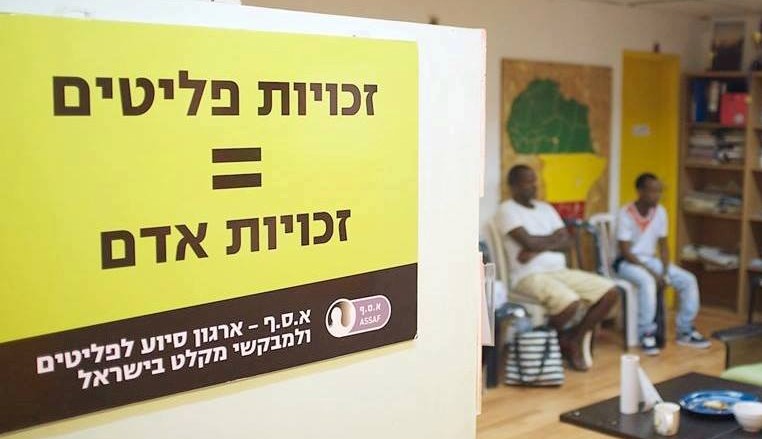The Social Affairs Ministry has admitted that during the past two years it has not provided any assistance to asylum seekers with disabilities or those working as sex workers, even though the Finance Ministry has given it millions of shekels for this purpose.

“Refugee rights = Human rights”; African asylum seekers in the offices of Assaf, the Aid Organization for Refugees and Asylum Seekers in Israel, in Tel Aviv (Photo: Assaf)
According to Haaretz, in a document sent by former Social Affairs Minister Haim Katz in May 2018 to MK Aida Touma-Sliman (Hadash), his ministry was committed to spending three million shekels every year on disabled asylum seekers. However, the ministry did not keep this promise. Foreigners who are not deportable were not placed in any of the ministry’s disabilities department’s out-of-home frameworks, mainly “because there was no way to address their medical needs.”
In a document from last June, a ministry official wrote that the assistance had not been provided due to “lack of response to the medical needs issue” and because “no budget was allocated” to help sex workers. The document also shows that in 2017-2018, when the ministry started getting funds for this purpose, it spent only six million shekels out of the 20 million it received for taking care of African asylum seekers at risk – including female violence victims and homeless people.
An inter-ministerial committee recommended a comprehensive plan last year to help the asylum seekers, at a cost of an additional 26 million shekels, but its conclusions were not published or implemented.
Assaf, the Aid Organization for Refugees and Asylum Seekers in Israel, has referred dozens of cases of asylum seekers to the ministry, many of whom are middle-aged and living in the streets, after losing their ability to make a living. However, the ministry often ignores them, despite the promise made by former Minister Katz in May 2018 to take care of these groups.
Related:


